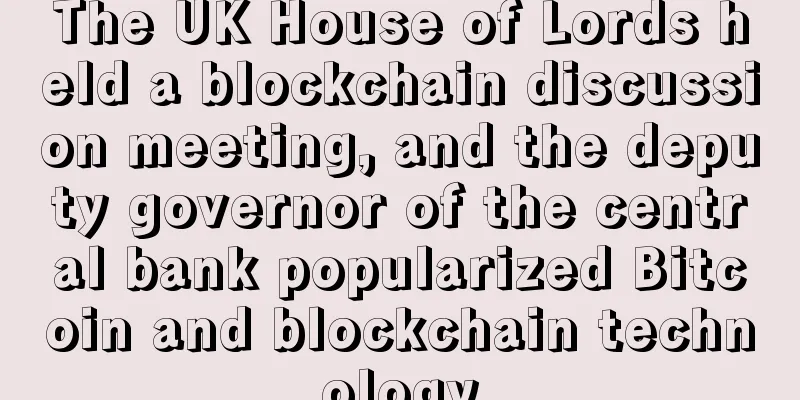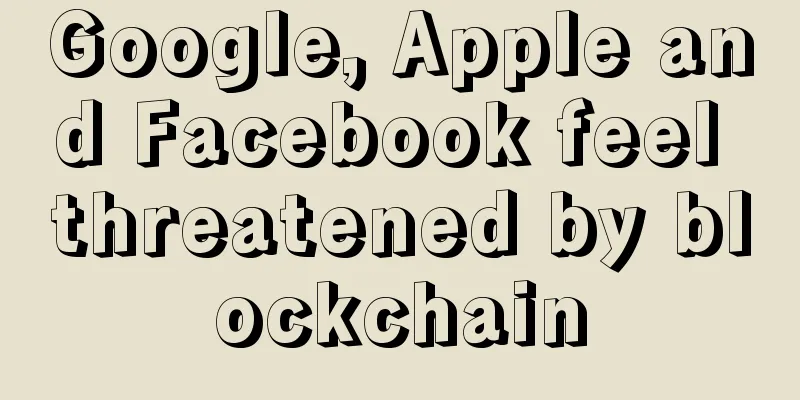The UK House of Lords held a blockchain discussion meeting, and the deputy governor of the central bank popularized Bitcoin and blockchain technology

|
A House of Lords committee recently held a discussion on blockchain technology, discussing the technology’s impact on finance and government work with a curious and critical tone. The House of Lords Economic Affairs Committee (EAC) heard from academics and representatives from the blockchain industry, as well as the central bank’s deputy governor, Ben Broadbent, in a three-hour discussion. Broadbent mentioned the idea of issuing central bank digital currency in his speech. He believes that this will be a long-term and continuous development process. At the same time, he also talked about the impact of blockchain technology on the financial market.
In addition to Broadbent, conference speakers include Blythe Masters, CEO of Digital Asset Holdings, Simon Taylor, co-founder and head of blockchain at 11:FS, Dr. Catherine Mulligan, deputy director of the Center for Cryptocurrency Studies at Imperial College, Michael Mainelli, professor at Gresham College Business School, and the Honourable Spens, director of PwC. This is the first time that the UK Parliament has publicly and formally discussed blockchain technology, and the first time it has expressed interest in blockchain use cases from a regulator's perspective. About Bitcoin Committee members asked a lot of questions about Bitcoin. One of the members asked, on which network will the central bank's digital currency operate (public chain or private chain)? Broadbent said that the central bank's digital currency will never use the Bitcoin network, but will use a private chain. We will never use a public chain. He said that the last thing market participants want is a public system. Someone asked Broadbent whether financial institutions would use public chains to evade market supervision, and his answer was no. We don’t have to worry too much about this issue because the financial system and regulatory authorities are inseparable. Doubts about blockchain welfare system Recently, the UK Department for Work and Pensions (DWP) launched a proof-of-concept project for the welfare system based on blockchain. The project has aroused heated discussions from all walks of life. In this meeting, some members criticized the project from an ethical perspective. Former British Chancellor of the Exchequer Alistair Darling publicly criticized the project because of its potential for privacy breaches.
Mulligan believes that the public has the right to choose freely for this project, and the project is still in the proof-of-concept stage, so it is a bit unwarranted to raise certain issues to a moral level too early. She admits that there are some privacy issues involved, but such issues can be properly resolved before the system is officially launched.
|
<<: Russian regulator allows use of Bitcoin for overseas operations
>>: Bitmain official website opens Antminer S9 for sale this Thursday
Recommend
How to tell if a person has a prominent nose bridge
The physiognomy of the nose bridge is one of the ...
No matter how you look, you won't let anyone see that you've been wronged.
Not only around us, it seems that there are such ...
SpaceRace Day 1: Proof of Marathon Endurance
Professionalism and focus, win-win cooperation Sp...
What kind of people are the most unfeeling?
What kind of face makes people the most heartless...
Tesla plans to restart cryptocurrency payments
Tesla, the electric car manufacturing giant led b...
El Salvador, which focuses on "bottom-fishing", has purchased at least 1,801 Bitcoins
El Salvador has purchased another 410 bitcoins fo...
What kind of woman has good fortune?
I believe that everyone in life desires good fort...
Is it good for men to have moles on the soles of their feet? Will you get rich?
Everyone has moles on their body to a greater or ...
What is a mole on a man's forehead? What does it mean?
People often use some special attributes of thing...
What does it mean to be a poor person with a small nose?
There are many things to consider when judging a ...
A man with a mole on his ear has a facial map. How to tell if a mole is good or bad?
1. A man with a mole on his earlobe A mole in thi...
The index finger shows a person's desire to dominate
The index finger shows a person's desire to d...
What are the characteristics of a man who is unlucky in marriage?
It is generally not advisable to marry a man who ...
What does it mean if your chin has a pit? It will bring you wealth.
When it comes to a person's facial features, ...
What are the common features of murderers' faces? Analysis of the common features of murderers' faces
In life, no one wants to meet bad people, especia...









